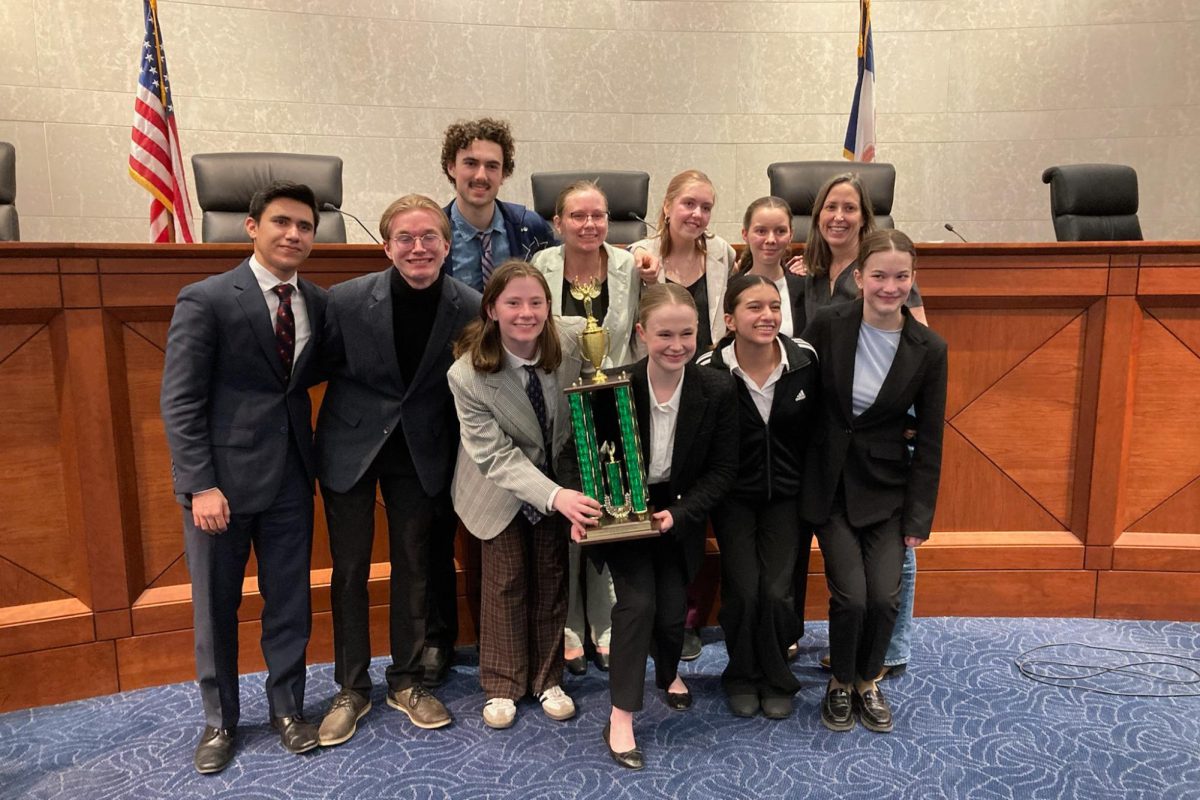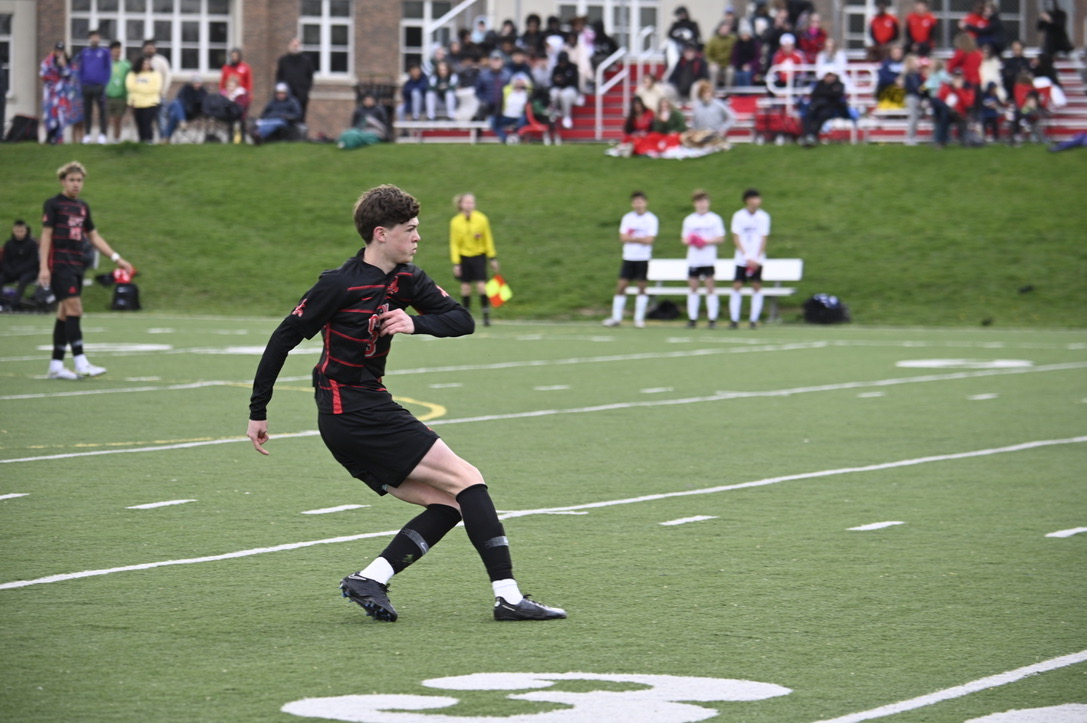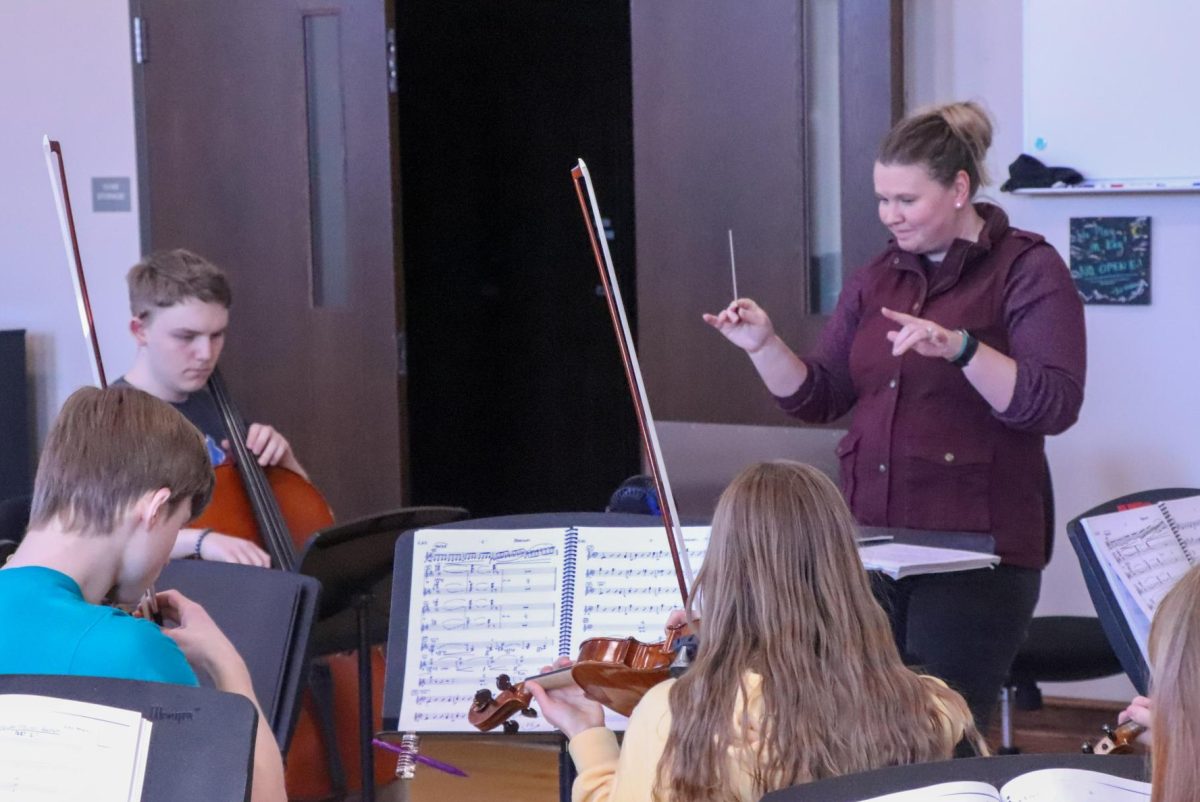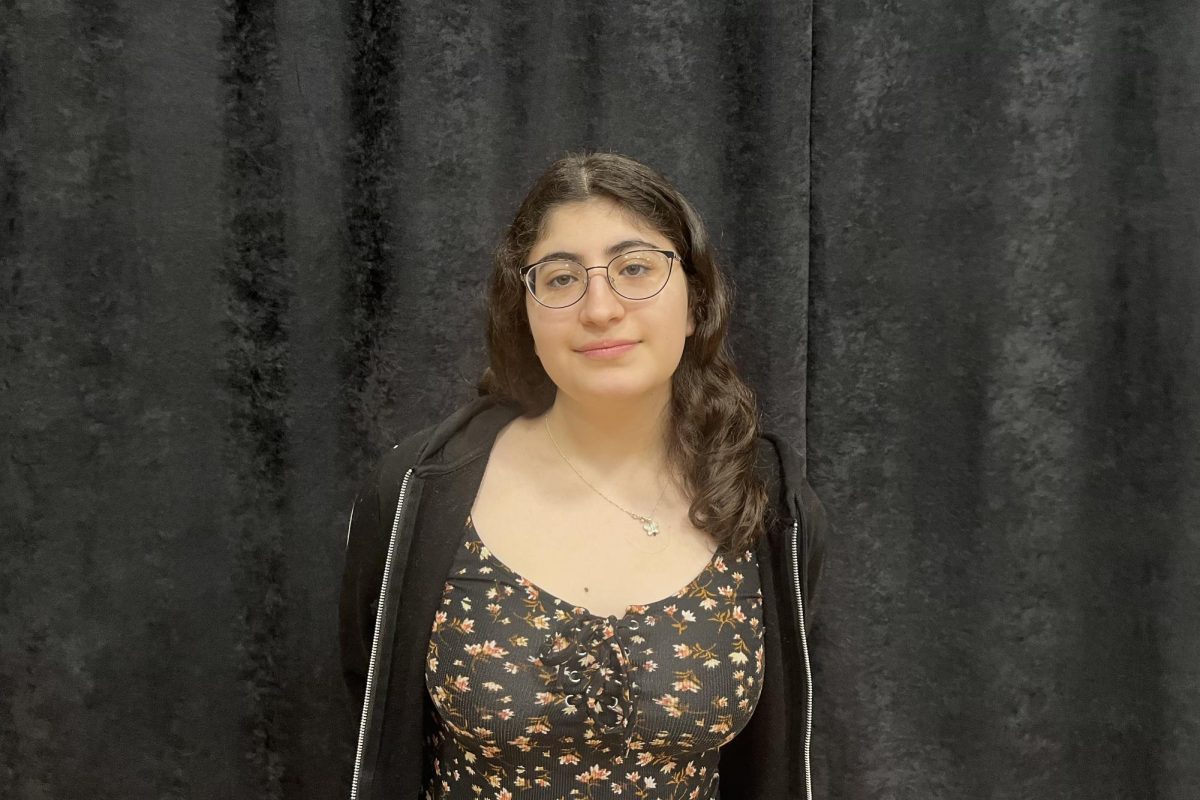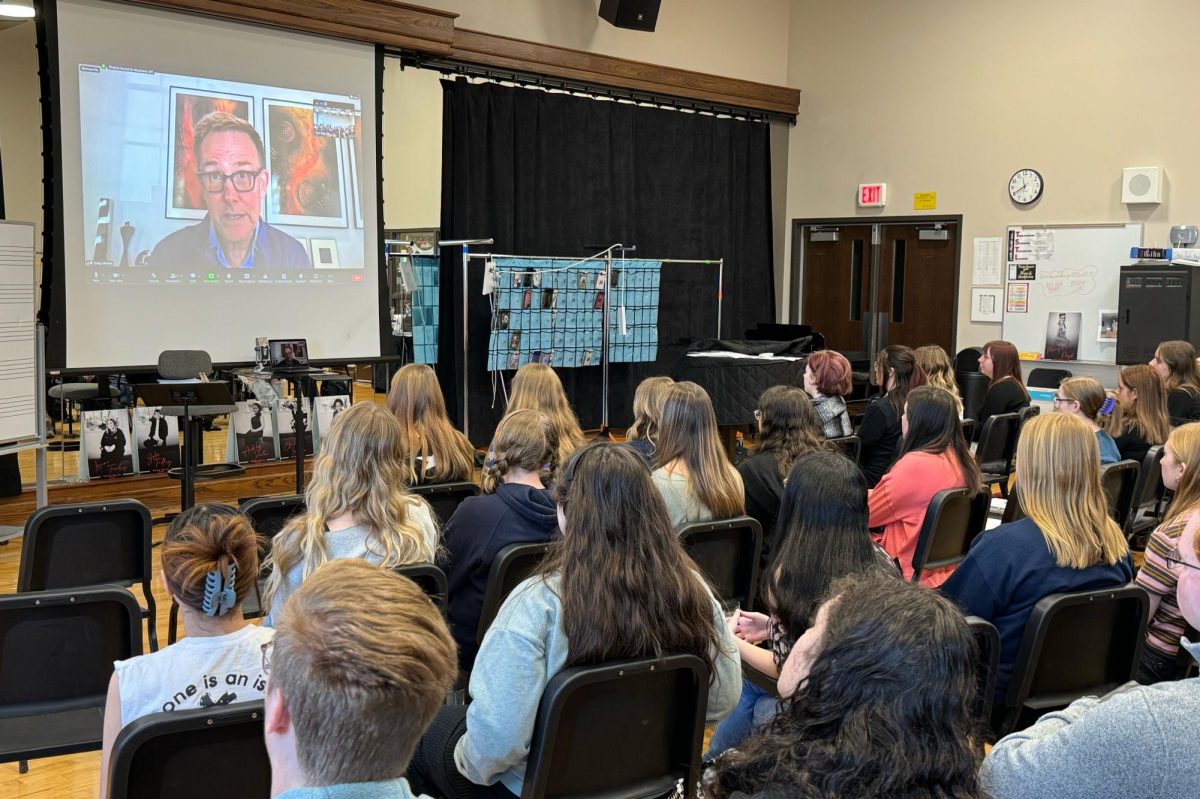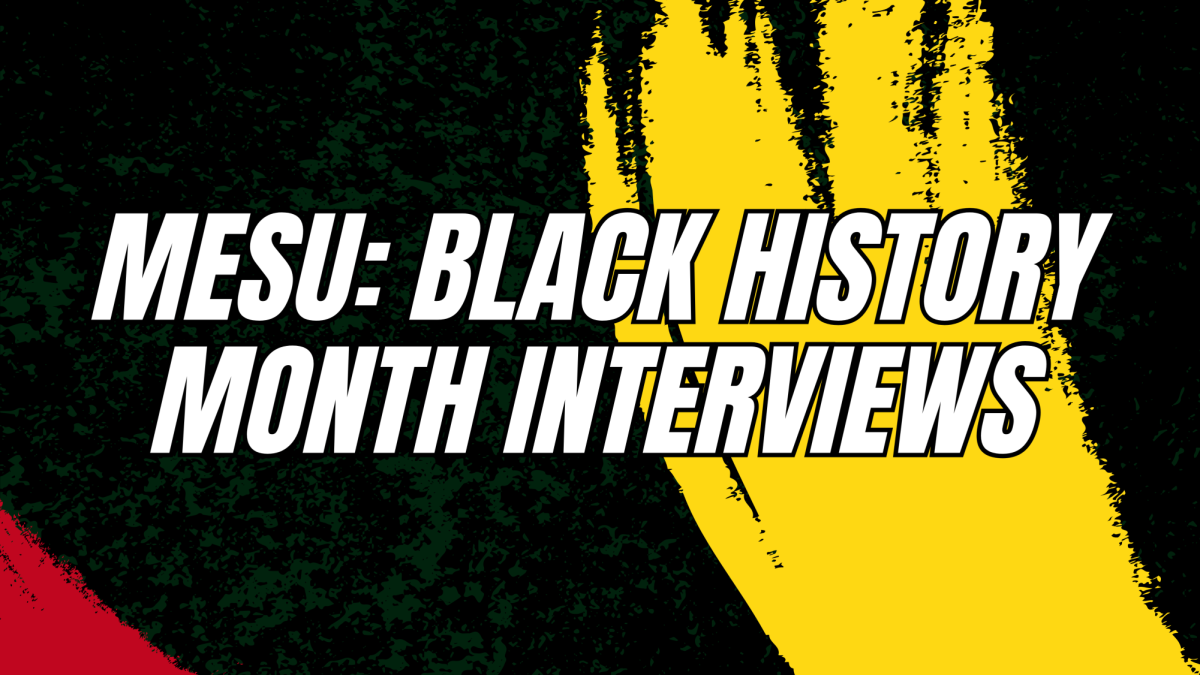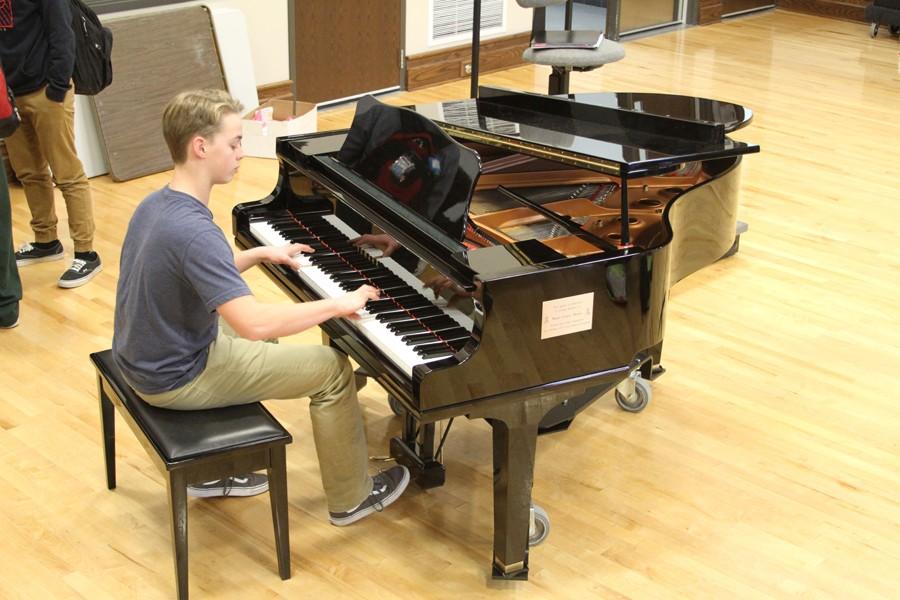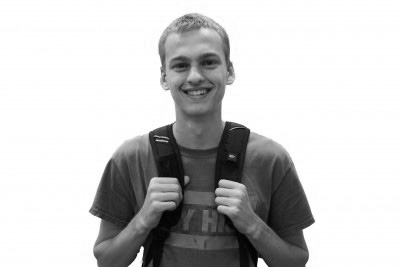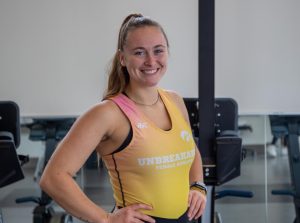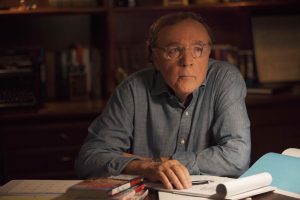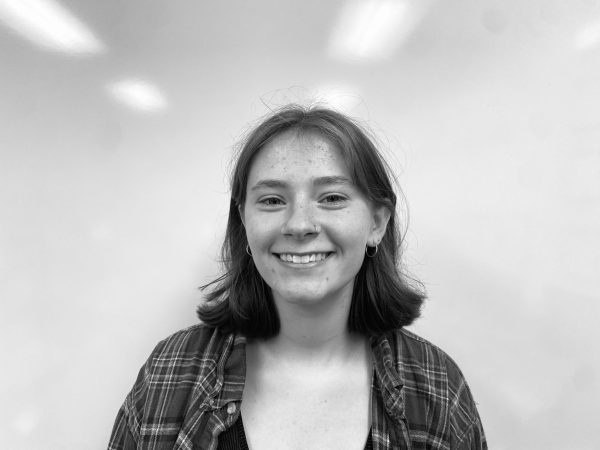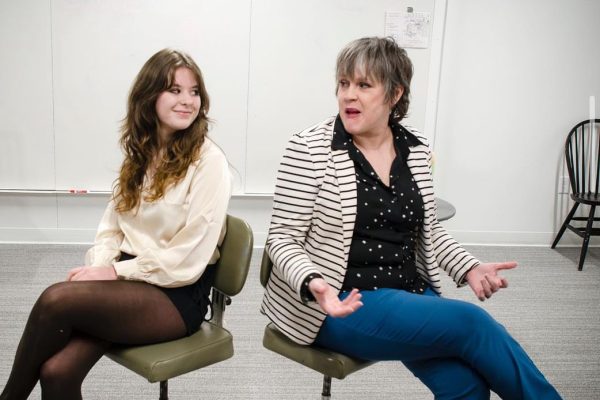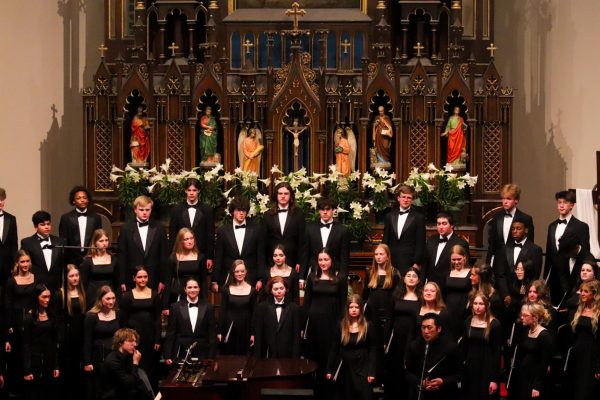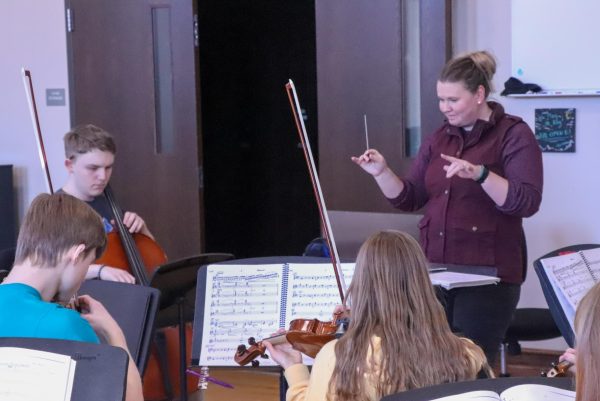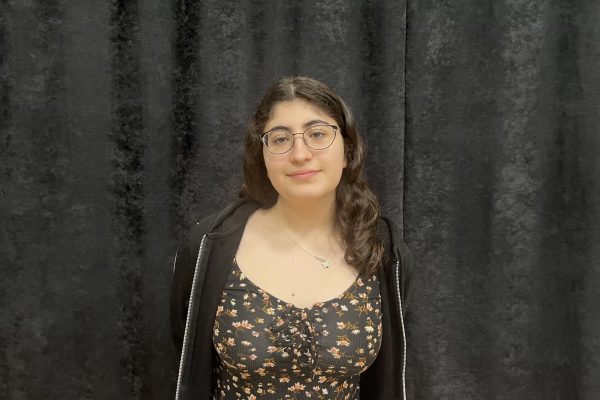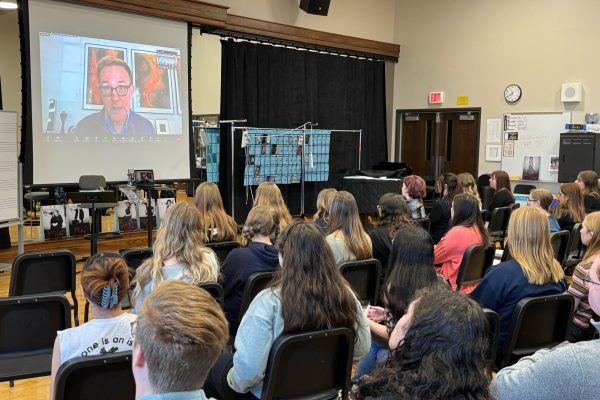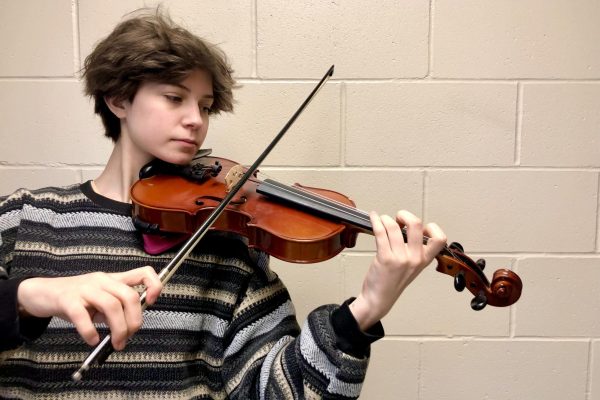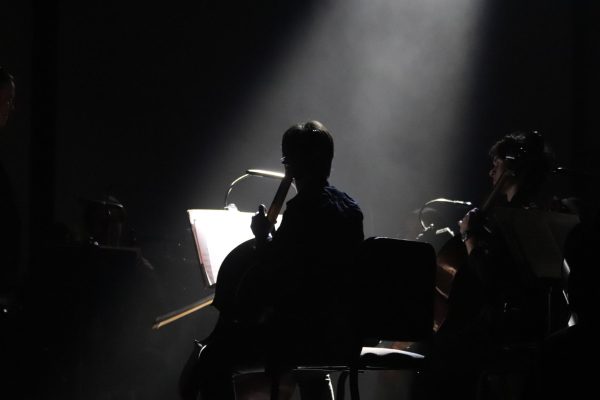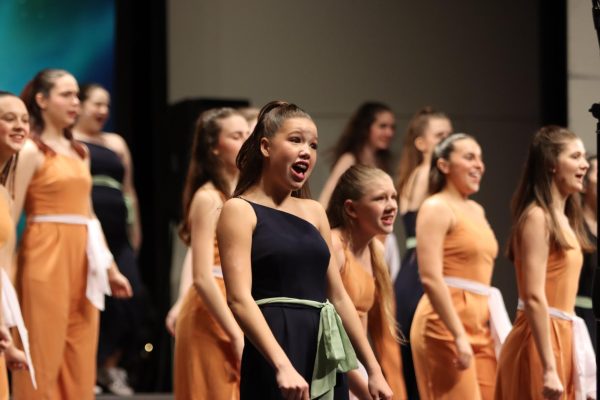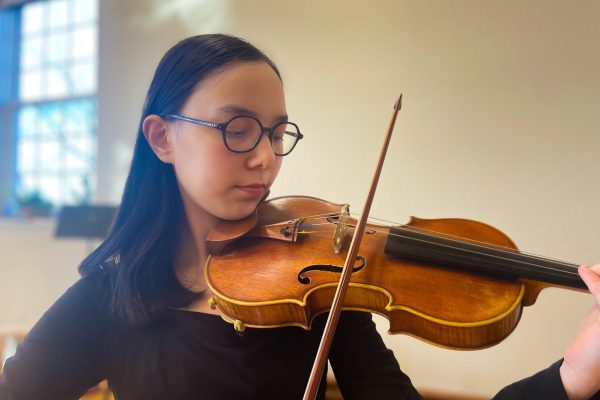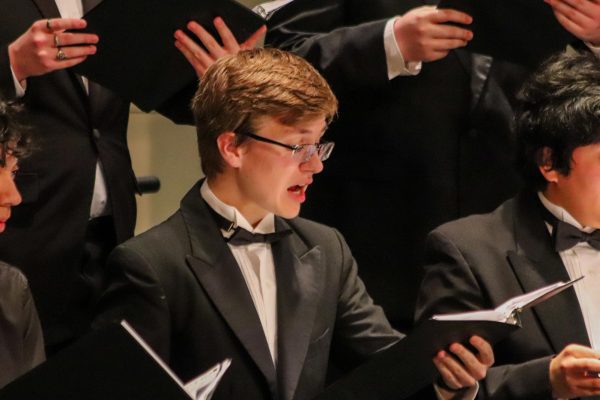Q&A: Levi Pugh
Levi Pugh, a young pianist involved in over five musical groups, shares what music means to him.
February 12, 2016
LH: When did you start playing piano?
LP: I started when I was eight, it was the March before I turned nine. I wanted to play drum set, but my parents were like, “No you’re going to play piano first, because we’re not buying a drum set.”
LH: What musical groups are you involved in?
LP: I’m the pianist for the Fourth Ave. Show Choir, and the City Lights Show Choir, and the jazz ensemble and the jazz combo. Then I’m going to play in the pit orchestra for Grease this year, I was in the band that played at prom last year, Vinyl Denial. We thought about playing for prom this year if we can. But yeah that’s what I do as far as school stuff.
LH: What do you like about music?
LP: I think there’s a certain amount of emotion you can get from listening to a song that you don’t really get from watching a movie or reading a book, where you hear something and you see the notes on the page, or something just sounds just right and it’s a pretty unique feeling. I don’t want to sound too cheesy and poetic, but there’s something that you can’t really… there’s no substitute for that feeling.
LH: Where do you plan on taking music the next couple of years?
LP: I’m not really sure what I’m going to do with music. I definitely want to do music for the rest of my life, but as far as what I’m going to do in college or for a career I haven’t really decided what I want to pursue for a career… Music seems to be the constant. It’s something that no matter where my passion has gone, music has stayed as a constant thing that I know I want to do throughout my life. So whether I major in music in college or not or if I minor in it or if I play in a band or I perform outside of school, I definitely want to keep music a big part of my life.
LH: What is your favorite type of music to play?
LP:I like playing slow sort of free form jazz. Not free form, because free form is kind of weird. But I like playing the slow jazz songs like Round Midnight, Autumn Leaves, I like playing slower ballad versions of those songs. It’s a lot of fun to be able to… You can play out a lot more than you could if you were playing a really fast song and it’s a lot easier to know the changes and you can play wrong notes and you can make them sound different and you can do a lot of different stuff improvisationally. You can do a lot of stuff with those songs and I think they’re really fun.
LH: What do you struggle in terms of playing piano?
LP:I struggle with finding time to be able to play what I want to play, because…and that’s not really in terms of being able to play it, it’s really more of not being able to play all the time. I want to be able to go home and practice for like three hours if I could, that would be great and I could play all the pieces I really want to play Chopin and Rachmaninoff and all these more advanced composers because that’s where I want to go to, that’s the level I want to be at, but I don’t have time to play it, and I certainly can’t sight read Chopin, and that part is very frustrating for me. other than that, probably working on left hand technique, being able to play equally with both hands.
LH: Is it difficult being younger than many people you play with?
LP: No. It was kind of weird last year because I was a freshman and everyone else was a Junior and Senior in the combo and stuff and that wasn’t bad because once I got adjusted to it, I like to think that they think of me, that we have a mutual respect for the way we play so when I hear them play I respect what they play and when they hear me play they respect what I play. I don’t want to be big headed or anything but I feel like I fit in well talentwise, I feel like I fit in well with the jazz ensemble and jazz combo and all of that and I think I make worthy contributions so I don’t really feel that weird about playing with people that are older than me.
LH: Do you have any advice for other pianists?
LP: It’ll be really boring when you first start playing, you might consider it really boring, but if you stick with it and you get to some of the more fun stuff like Chopin and Rachmaninoff, the more difficult stuff. But if you can stick with it through the techniques and the boring stuff and that all is very important to build a foundation and once you get that foundation it’s going to open up to so many new things, like opening up to jazz and blues and all kinds of free form stuff and more classical pieces and it’ll become a whole new world of music.
LH: Why do you continue to play piano?
LP: Well, shortly after I started playing I realized this could actually be fun, I could actually be good at this. My lessons [were] going really well, I got done with the official lesson books pretty quickly so I was able to move on to some of the more fun stuff a lot sooner than some people who just get bored during the regular lesson books and [who] drop it because they think it’s boring, but I was able to get through that so once I got to the fun stuff I was like, “Hey this is way cooler than I thought it would be.”
LH: Do you compose your own music?
LP: I have in the past but I haven’t really done that in a long time — I actually, I wrote a song this year that pretty much nobody knows about. I told you about it but I haven’t really — I said I was going to share it with the jazz combo, but I didn’t really do that. I don’t know. I like it, I like composing sometimes but I don’t think I know enough about music — I know enough about, like, I can maybe compose a classical piece, but if I was to compose a jazz piece I feel like I’d have to know a little more because as far as I — I just know about sounds, I don’t really know about names for stuff very well. Joey Schnoebelen has talked to me about some stuff, some camps and things I can get involved in to expand my knowledge of like jazz music and the terminology that is used and the types of techniques that are used, but as far as my knowledge it’s mainly just like, “Oh that sounds cool, I’m going to write it down.”
LH: Where do you find inspiration?
LP: Usually when I write music, I usually write minor, dissonant sounding tunes with major resolve, it’s not really important what I write but there’s usually a certain mood to the stuff I write, it’s kind of melancholy.
LP: I have in the past but I haven’t really done that in a long time. I actually wrote a song this year that pretty much nobody knows about. I was going to share it with the jazz combo, but I didn’t do that. I like it, I like composing sometimes but I don’t think I know enough about music — I can maybe compose a classical piece, but if I was to compose a jazz piece I feel like I’d have to know a little more because I just know about sounds. Joey Schnoebelen has talked to me about some camps and things I can get involved with to expand my knowledge of jazz music and the terminology and the techniques that are used, but as far as my knowledge it’s mainly just like, “Oh that sounds cool, I’m going to write it down.”





